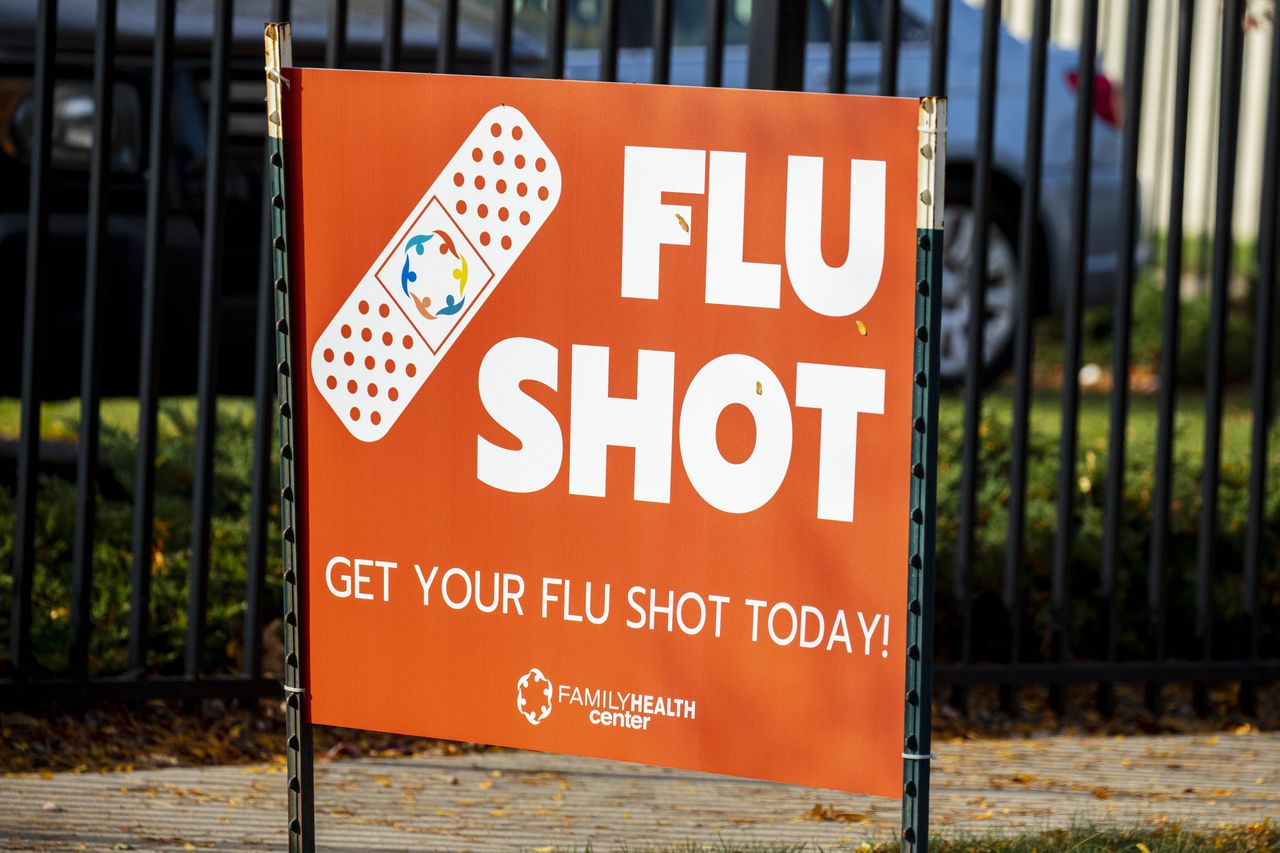Signs are that flu will come back this season with a vengeance after COVID-19 break
After a COVID-19-induced two-year break, influenza seems to be coming back with a vengeance.
It’s difficult to predict just how bad a flu season might be, but U.S. scientists can typically take some clues from Earth’s southern hemisphere, which experiences its winter season in June, July and August. Australia is emerging from its worst flu season in five years, spelling trouble for countries where temperatures are just now dropping.
This flu season is made all the more complicated by the still-spreading coronavirus. Experts expect that, just like in 2020 and 2021, COVID-19 cases will spike sometime during the holidays.
“It’s going to be a question of ‘What is the impact on the health care system,’” said Dr. James Cutrell, associate professor in the Department of Internal Medicine at UT Southwestern Medical Center. “If you have clinics or hospitals that are dealing with lots of people who are coming in with both COVID and flu, that combination has the possibility of putting additional strains on the health care system.”
If both the flu and COVID-19 spike at the same time, hospitals will be fighting the viruses simultaneously for the first time. Public health protections used to mitigate the spread of COVID-19, like masking and social distancing, did a great job of also preventing the flu, but use of those tools is almost non-existent now.
And because spread of the flu was minimal during the pandemic, there’s less circulating immunity, said Dr. Preeti Sharma, a pediatric pulmonologist at Children’s Health in Dallas.
Doctors are warning people not to take a lax approach to this flu season, even if it feels like a less severe threat compared to COVID-19.
“We’ve all sort of looked at COVID as the severe respiratory viral illness, but prior to COVID, influenza had that history of hospital admission and other complications in variable age groups, from infancy through the elderly,” Sharma said. “We know that the flu brings with it significant risk for complications.”
Is it the flu, COVID-19 or a cold?
Symptoms associated with the flu, COVID-19 and the common cold can look nearly identical.
All can come with congestion, cough, a sore throat, body aches and fever, although fevers tend to be lower with just a cold. The previously tell-tale sign of a COVID-19 infection – loss of taste and smell – is now relatively uncommon with the omicron variant, which is the dominant coronavirus strain in the U.S.
Both the flu and COVID-19 can also cause shortness of breath or difficulty breathing, and some patients experience gastrological symptoms, like nausea, vomiting and diarrhea.
Other viral illnesses are also beginning to spread, including respiratory syncytial virus, or RSV, which causes mild, cold-like symptoms for most people, but can be severe for infants and the elderly. RSV is the most common cause of pneumonia in children under 1 year old, according to the Centers for Disease Control and Prevention.
Preventing winter-time illnesses
The best way to prevent yourself and others from getting the flu or COVID-19 is by getting vaccinated.
Both the flu shot and the COVID-19 vaccine are available for anyone older than 6 months. The new bivalent COVID-19 booster, which protects from both the original coronavirus strain and the omicron variant, is available to anyone 12 and older who had their last COVID-19 vaccine dose at least two months prior.
It’s safe to get both the flu shot and the COVID-19 shot on the same day.
Doctors can prescribe antiviral medications to people with a COVID-19 or flu infection to lessen the severity of the illness.
Other public health measures like regular hand washing, masking and staying home when ill also help prevent viruses from spreading. Good health hygiene is a practice that parents can teach their children at an early age.
“When your kid comes home from school, especially if there’s a little baby in the house, make sure they wash their hands before they give their little brother or sister a kiss. Teach them to cough into their elbow or sleeve and to wash their hands when they’re done coughing and sneezing,” said Cook Children’s hospitalist Dr. Laura Romano.
“And please, please, please keep them home if they’re sick.”
____
©2022 The Dallas Morning News. Distributed by Tribune Content Agency, LLC.
